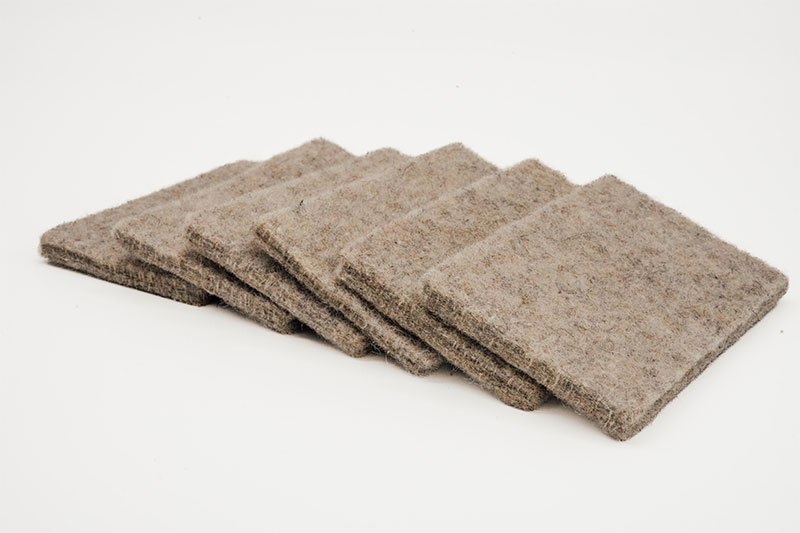100% Natural Scrub Pad
Environmental Safe Cleaning

Our 100% recycled fiber, all-wool scrub pads are the perfect choice for those looking to clean with a sustainable, all-natural, and plastic-free scrub pad.
Our mechanical bonding process takes wool to the next level by ensuring each scrub pad is free from any resins or chemicals. You can expect a long lifespan because of its ability to compress rather than wear away with each use. To get the best performance from our scrub pads, wash with warm water and soap between hands for 30 seconds before first use.
Benefits of our Scrub Pad
100% Recycled
Recycled All Wool Fiber
Biodegradable
Does Not Contribute to Ocean Plastic
Healthier
Naturally Anti-Bacterial
Up to 10x More Use
Last Longer than Traditional Sponges
Improves with Use
Fibers Interlock with Continued Use
Cleaner
No Smell or Odor from Use
Benefits of Using Wool
Biodegradable
Wool grows naturally on sheep, and is made of a protein called keratin – the same protein that is in human hair. During the biodegradation process, fungi first destroy the ends of the wool fiber. Bacteria then digest the weakened fiber by secreting enzymes. This is the reason wool biodegrades so well
Natural Antibacterial Properties
Wool does not promote the growth of bacteria or dust mites, nor does it give off harmful gases. In addition, the fibres are too long and too coarse to be inhaled, so wool will not irritate the respiratory system or trigger an allergic reaction.
Improves With Use
One of the most widely used techniques for manufacturing felt is called wet felting. This is a process where you mix fibers with water to entangle the strands of fiber into each other. When using a wool-based scrub pad, you are essentially wet felting the fibers and creating a continually more dense scrub pad. The high natural resilience of the wool fiber will also ensure that the scrub pad is maintained when subjected to the stresses and strains of everyday usage.
Flame Resistant
Of the commonly used textile fibers (cotton, rayon, polyester, acrylic and nylon), wool is widely recognized as the most flame resistant. Wool’s inherent fire resistance comes from its naturally high nitrogen and water content.
